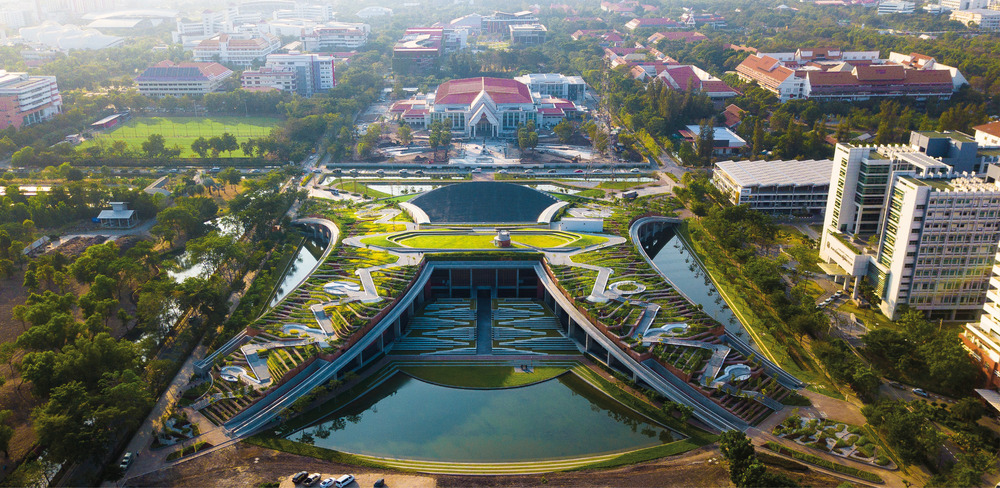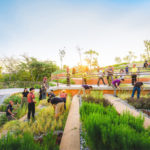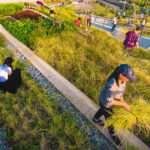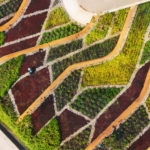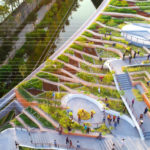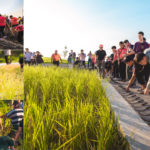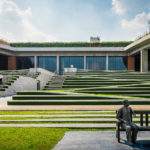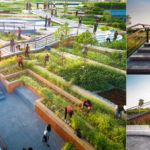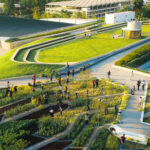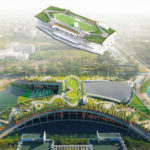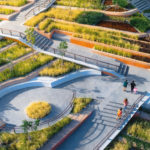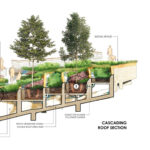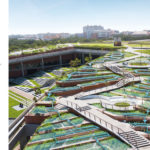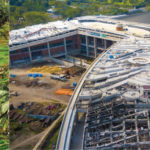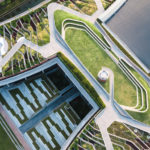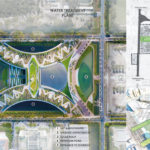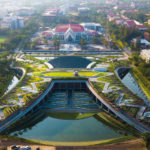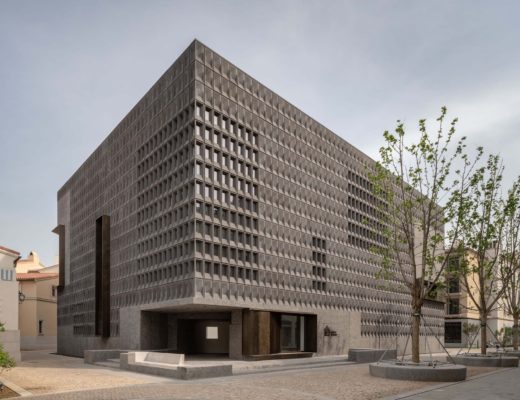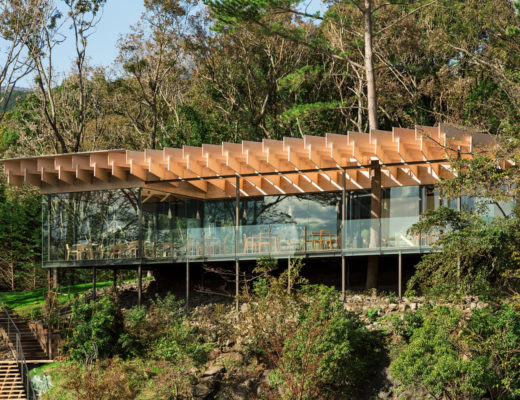Amid the climate crisis, food and water scarcity are two of the biggest threats to societies. Once predominantly agrarian societies, Bangkok and other cities across Southeast Asia, have succumbed to unregulated and rampant urbanisation. To prioritise global food security, and the health of society and the environment, cities must utilise neglected spaces to efficiently and sustainably produce food.
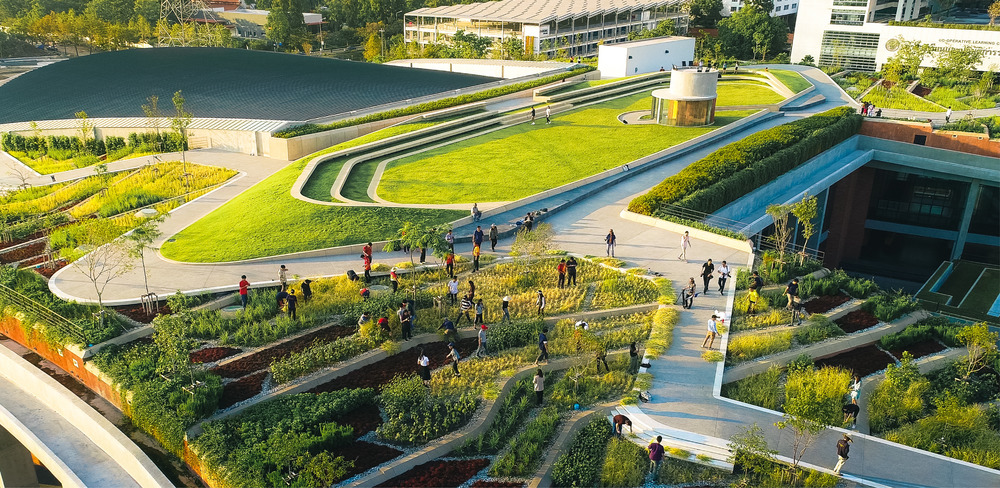
TURF rewards those who climb to the top with a 360-degree panoramic view of the university centered in the urban farm with open sky. A large amphitheater provides an accessible and flexible recreational and educational space for all visitors.
LANDPROCESS, a Bangkok-based landscape architecture and urban design firm founded in 2011 by landscape architect Kotchakorn Voraakhom, has helped to repurpose 22,000m² of wasted rooftop space, Thammasat University introduces an adaptive climate solution with Asia’s largest organic rooftop farm — Thammasat University Rooftop Farm (TURF). Integrating landscape architecture with the ingenuity of traditional rice terraces, TURF incorporates sustainable food production, renewable energy, organic waste, water management and public space. The mound-shaped architecture pays respect to the university’s former director, Dr Puey Ungphakorn. “Puey” means “mound under the tree,” or “nourishment,” in Thai. With an earthwork of rice terraces and modern green roof technology, the cascading rooftop absorbs, filters and slows down runoff 20 times more efficiently than conventional concrete rooftops.
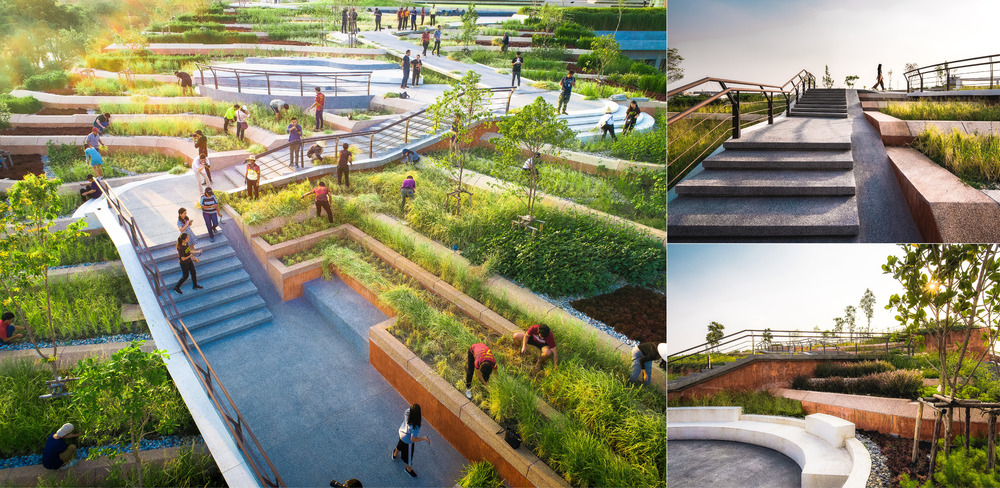
Small pockets dispersed along the zig-zag staircases provide intimate social spaces, as well as access to the crop plantations. Every possibility of angles and corners create social spaces that align with the roof ’s curvature.
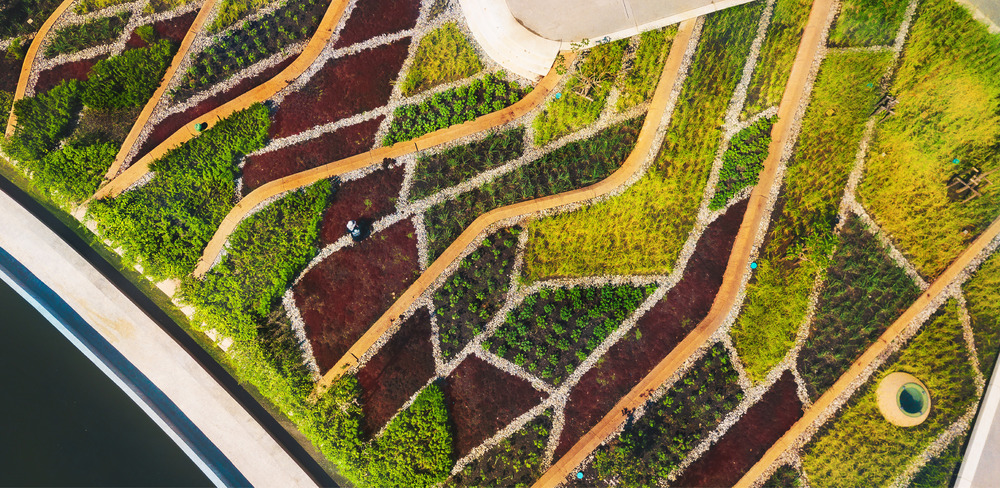
TURF provides up to 20 tons (80,000 meals) of organic food each year. The campus canteens complete the sustainable food production system from start to finish, reducing CO2 emissions and waste as compost to fertilise crops for the next harvest.
As rainwater zigzags down the slopes, TURF grows food to feed the campus. At the end of its journey, four retention ponds await on each wing, mitigating and storing excess rainfall for future use during drought. Carving into the mountainous architecture, TURF maximises the terrain to create multi-functional public spaces, and a large amphitheatre with a 360-degree panoramic view of Bangkok. The roof is equipped with solar panels, capable of producing up to 500,000 watts per hour to irrigate the urban farm and power the building beneath it.
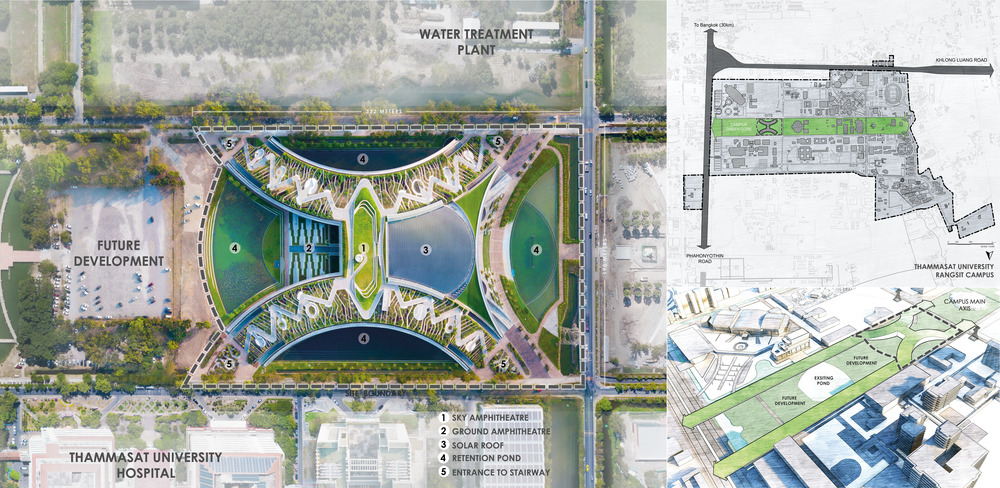
Located at the main axis of the campus, the H-shape architecture symbolizes university’s long-standing representation of egalitarianism and democracy. Divided into four equally-accessible sections, each chamber represents a core element of democracy—people, liberty, equality, and fraternity.
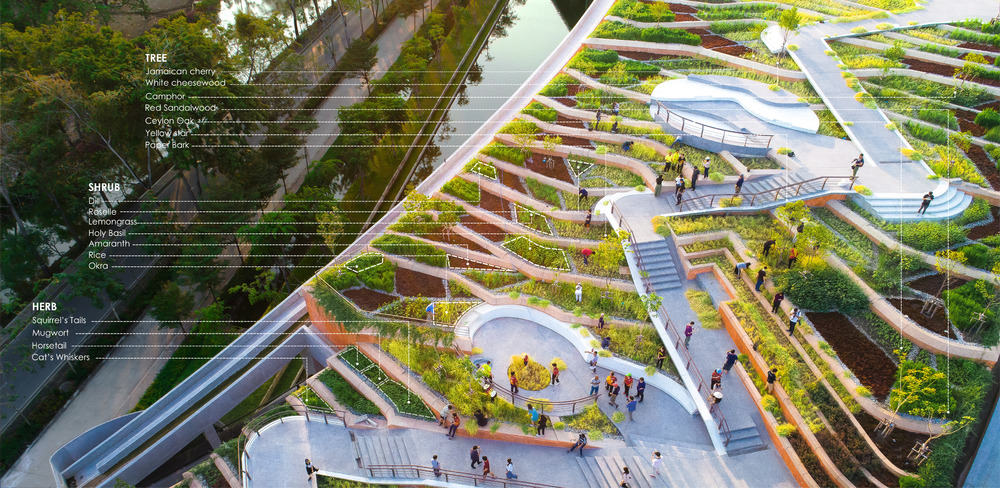
TURF grows more than 40 edible species, including rice, indigenous vegetables and herbs, and fruit trees. Ranging from water-tolerant to drought-resistant, each suits the unique microclimate created by sunlight exposure, curvature, water flow, roof’s elevation, and its wings.
As lush green turns to dry brown, TURF is a realistic, but hopeful solution, putting urban dwellers back in tune with agricultural practices. Lessons on Thai agriculture, landscape and native soil are embedded into TURF, educating future leaders to adapt and embrace climate challenges, by building sustainable cities for generations to come.
See the full image gallery here:
- TURF provides up to 20 tons (80,000 meals) of organic food each year. The campus canteens complete the sustainable food production system from start to finish, reducing CO2 emissions and waste as compost to fertilize crops for the next harvest.
- TURF grows more than 40 edible species, including rice, indigenous vegetables and herbs, and fruit trees. Ranging from water-tolerant to drought-resistant, each suits the unique microclimate created by sunlight exposure, curvature, water flow, roof’s elevation, and its wings.
- Small pockets dispersed along the zig-zag staircases provide intimate social spaces, as well as access to the crop plantations. Every possibility of angles and corners create social spaces that align with the roof ’s curvature.
- TURF rewards those who climb to the top with a 360-degree panoramic view of the university centered in the urban farm with open sky. A large amphitheater provides an accessible and flexible recreational and educational space for all visitors.
- Located at the main axis of the campus, the H-shape architecture symbolizes university’s long-standing representation of egalitarianism and democracy. Divided into four equally-accessible sections, each chamber represents a core element of democracy—people, liberty, equality, and fraternity.
Photos: Panoramic Studio / LANDPROCESS
You might also like:
World’s largest urban farm will open in Paris in 2020
Guallart Architects wins post-covid housing competition for China’s new Xiong’an city

